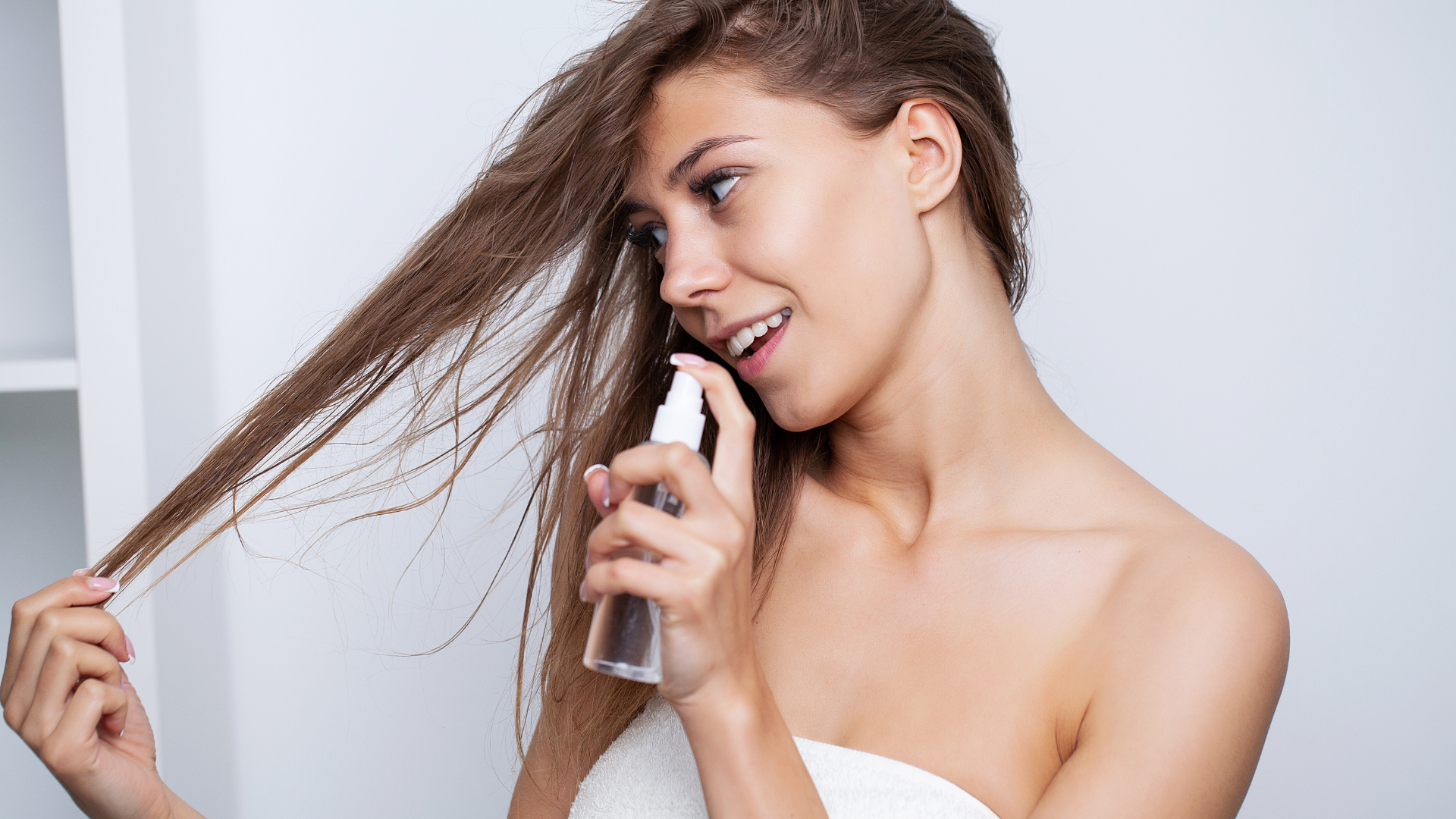Do you want to grow your hair faster and longer? You can naturally grow your hair faster by applying certain natural methods. Vitamins A, B Complex, C, D, and E, and minerals like iron, copper, zinc, selenium, and iodine are important to healthy hair.
It’s important to acknowledge that for some individuals, regenerating lost hair might not be feasible through conventional methods. Factors such as genetics, medical conditions, or damage to hair follicles can impede natural regrowth. In such cases, exploring alternative solutions like hair transplants becomes a viable option. If you’re considering this option, you could consult with professionals at a reputable hair clinic Birmingham (if that’s where you live), ensuring personalized care and optimal outcomes tailored to your unique needs.
Indeed, while hair transplants offer a substantial solution for those facing hair loss challenges where other methods may not suffice, it’s beneficial to complement such treatments with holistic approaches aimed at enhancing overall hair health. Nutritional adjustments, for instance, focusing on a diet rich in proteins, vitamins, and minerals essential for hair strength and growth, can be remarkably effective. With these practices, alongside professional treatments, you’re equipped to support your hair’s vitality from multiple angles. So, let’s now look at some other ways you can help your hair grow.
Get frequent trims
A haircut can make you look and feel better, so it’s time to shake things up if you’re in a bad hair rut. Hair grows in cycles. There is a pattern to the growth cycle, and hair grows in three stages: anagen, catagen, and telogen. This is commonly known as the hair growth cycle, which varies for everyone. Trimming the ends of your hair frequently helps to get rid of any split or frayed ends, which helps keep your hair healthy and promotes good hair growth.
Eat the right diet
Choose the correct foods for your body, and your hair will grow long and strong. Many people think eating rich, fatty foods will make their hair grey, and it’s true that some foods can have that effect. However, in turn, consuming the right foods will keep your hair healthy. Foods such as whole grains, fruits, vegetables, and lean proteins contribute to strong and healthy hair. Conversely, foods like sugar, salt, red meats, and processed foods can be detrimental to your hair, so it’s advisable to limit their consumption.
That being said, it’s worth noting that significant hair loss and baldness may not always be reversible and could be attributed to genetic factors, hormonal imbalances, medical conditions, or certain medications. In such cases, maintaining a healthy diet alone may not promote hair growth, and alternative options such as hair transplants, wearing wigs, or opting for cosmetic procedures like scalp micropigmentation (SMP Manchester or elsewhere) may be necessary to restore your desired appearance and confidence. These options offer effective solutions for individuals experiencing significant hair loss or baldness, providing both aesthetic enhancement and psychological support.
Add a hair-healthy vitamin to your a.m. routine
Enhance the health of your hair with organic shampoo and conditioner from Pureology-a line that works to cleanse and condition from the inside out. Pureology offers shampoo and conditioner for different needs, including strengthening, thickening, and keratin treatment. Sometimes they can be a bit pricey, but you can find coupons for the brand online.
Shampoo less and hydrate more
Shampooing our hair too often and using products containing harsh ingredients can strip the hair of its natural moisture. This can lead to hair that is dry, brittle, and frizzy. To prevent this from happening, try using less shampoo and instead use conditioner more often. Also, drink plenty of fluids-water, herbal teas, and fruit juices-and avoid heavily caffeinated beverages, which can cause damage to the hair.
Lay off the bleach
Bleaching your hair for higher volume, shine, or color has never come without risks. The ingredients in your bleach and the length of use it can cause your hair to become brittle, dry, or weak. A streaky, unnatural color may also result from bleaching. And while these side effects may not impact your hair immediately, they can lead to long-term damage.
Avoid excessive heat styling
Most of us have experienced heat styling at some point, but how much do you really know about how heat styling can damage your hair? Heat styling can damage your hair in many ways, including causing dry, brittle, and split ends. Even heat settings on professional styling tools can severely damage your hair. Heat styling can cause hair to lose its shine and bounce, making it look dull and unhealthy, as well as creating excess frizz on your hair, leaving you with hair that is unmanageable and prone to tangling. Excessive heat styling can also cause your hair to dry out and break easily.
Brush hair regularly
Brushing your hair daily will help keep hair healthy, shiny, and less likely to fall out. Brushing your hair regularly is also a good way to reduce the length of split ends and save cash on trips to the hair salon.
Keep your showers cooler and focus on scalp care
As the summer approaches, many of us will be looking forward to warmer temperatures and sunshine. However, some places may also find themselves dealing with heat waves. Although a heat wave doesn’t typically last too long, it can wreak havoc on your hair. To avoid this, try and keep your showers cool, as this helps the scalp retain moisture, as well as closes any hair cuticles to help them stay moisturized.
Sleep on a silk pillowcase
Sleep on a silk pillowcase. Sounds too good to be true, right? But hear us out. Silk is a natural fiber that’s soft to the touch, and silk pillowcases actually feel cooler than cotton ones, preventing you from overheating while you sleep and any excess sweating that you may have experienced when using cotton bedding. At the same time, silk pillowcases help your hair to retain its moisture to stop frizz and reduce friction, meaning they also can help reduce bedhead and headaches in the morning.
Try using minoxidil
Hair loss and baldness are common problems for men and women. For men, it’s particularly common in their early twenties but can affect anyone. Women can also experience baldness or thinning hair, but it’s often during their forties. In these cases, hair loss is also referred to as female pattern hair loss or androgenetic alopecia. There are many different reasons why one could lose or grow their head of hair. Minoxidil can help by encouraging hair growth where the hair loss has occurred, however, you should make sure that you do your research and consult a medical professional before you ahead and use it.
Consider talking to your doctor or opting for non-surgical cosmetic procedures to address hair loss
Hair loss is a prevalent concern for both men and women, striking at any age. Androgenetic alopecia, often referred to as pattern baldness, is the most common culprit. While some experience hair loss in their twenties, it can begin much earlier.
Don’t lose hope! Consulting a doctor can help pinpoint the cause of your hair loss and explore treatment options to regain your confidence.
For instance, if you are a man experiencing hair loss, your doctor can prescribe medications like Finasteride (brand name Propecia), which can act as an effective solution. Finasteride targets an enzyme that converts testosterone into DHT, a hormone linked to hair loss in men with genetic predisposition. By inhibiting DHT production, it can help slow down hair loss and potentially promote regrowth. Wondering where to buy finasteride from? How about you check your local medical stores or online dispensaries?
That being said, women facing hair loss have treatment options as well. Spironolactone, a medication that regulates hormones affecting hair loss, might be prescribed by your doctor. Additionally, minoxidil, a topical treatment available over the counter, can be used by both men and women to stimulate hair growth, although complete regrowth is unlikely.
Aside from medicinal treatments, there are alternative non-invasive cosmetic procedures available to address concerns like hair thinning and even baldness. If you have tried medications without success, it might be a wise option to explore these cosmetic treatments offered by reputable clinics. A hair specialist can assess your specific hair concerns and accordingly recommend procedures like Scalp Micropigmentaiton or Platelet-Rich Plasma therapy. These options can greatly help rebuild confidence in your appearance.
Conlclusion
By following the above steps, you can be assured that you are doing all you can in order to make your hair look the best it possibly can! This may require some commitments when it comes to lifestyle changes, but it really will be worth it for how happy a full, healthy head of hair can make you feel.





